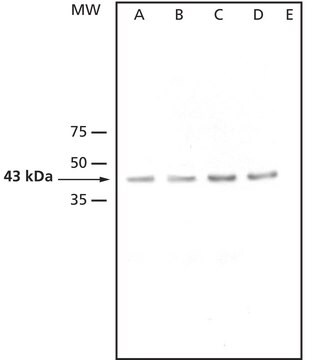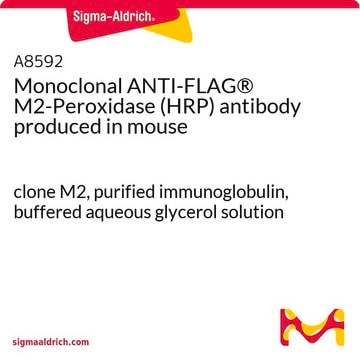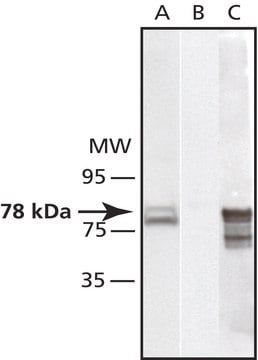05-486
Anti-FADD Antibody, clone 1F7
clone 1F7, Upstate®, from mouse
Sinónimos:
Anti-GIG3, Anti-IMD90, Anti-MORT1
About This Item
Productos recomendados
biological source
mouse
Quality Level
antibody form
purified antibody
antibody product type
primary antibodies
clone
1F7, monoclonal
species reactivity
mouse, human
manufacturer/tradename
Upstate®
technique(s)
western blot: suitable
isotype
IgG1
NCBI accession no.
UniProt accession no.
shipped in
dry ice
target post-translational modification
unmodified
Gene Information
human ... FADD(8772)
mouse ... Fadd(14082)
Specificity
Immunogen
Application
Apoptosis & Cancer
Apoptosis - Additional
Quality
Target description
Linkage
Physical form
Storage and Stability
Analysis Note
Positive Antigen Control: Catalog #12-303, Jurkat cell lysate.
Legal Information
Disclaimer
Not finding the right product?
Try our Herramienta de selección de productos.
Optional
Storage Class
12 - Non Combustible Liquids
wgk_germany
WGK 2
flash_point_f
Not applicable
flash_point_c
Not applicable
Certificados de análisis (COA)
Busque Certificados de análisis (COA) introduciendo el número de lote del producto. Los números de lote se encuentran en la etiqueta del producto después de las palabras «Lot» o «Batch»
¿Ya tiene este producto?
Encuentre la documentación para los productos que ha comprado recientemente en la Biblioteca de documentos.
Nuestro equipo de científicos tiene experiencia en todas las áreas de investigación: Ciencias de la vida, Ciencia de los materiales, Síntesis química, Cromatografía, Analítica y muchas otras.
Póngase en contacto con el Servicio técnico








